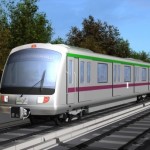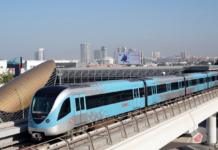Source: www.indiatimes.com
Hats off to the great initiative you have started.
 We badly need a start date and it should be early. Being a daily commuter from one end of Bangalore (Vijayanagar) to another (KR Puram-Marathahalli), thousands of people like me spend most part of the day on Bangalore’s roads. I require more than two hours to reach office in the morning and around three hours to reach home in the evening… Our Metro is delayed, and we don’t know who will answer this question or even whom to ask.
We badly need a start date and it should be early. Being a daily commuter from one end of Bangalore (Vijayanagar) to another (KR Puram-Marathahalli), thousands of people like me spend most part of the day on Bangalore’s roads. I require more than two hours to reach office in the morning and around three hours to reach home in the evening… Our Metro is delayed, and we don’t know who will answer this question or even whom to ask.
I still don’t understand why our well-educated politicians keep fighting over nonsensical issues and why they don’t raise this issue at the Centre. Why is the Congress government not supporting Bangalore’s Metro and why is certification getting delayed? Call it politicians’ negligence or BMRCL negligence — but why is the public paying the price?
I see a lot of places where work is going on very slowly — Magadi Road, near Prasanna theatre, Toll Gate, Mysore Road, Yeshwanthpur. Why can’t BMRCL bring more tunnel boring machines and start work simultaneously, so that work is completed at least in a year? Instead of paying for high costs later, we can pay for the tunnel boring machines. Until underground work is complete, Phase 1 can never be completed.
Times Group, please take this initiative seriously and aggressively. You will help a dream come true for lakhs of Bangaloreans.
— Chethan U S, Bangalore
LETTER 2
Lessons from Dubai Metro
Having lived in Dubai for several years, I can’t but recollect the experience of the Metro project there. In 2005, the Dubai project was announced — around the same time as Bangalore’s Metro. Therefore, with great curiosity and interest, I followed the progress of both cities.
The Dubai Metro project is an example of great planning and clockwork execution. On May 29, 2005, the project was announced and the following day, the contract was signed. On March 21, 2006, the ground-breaking ceremony was complete, and work began in earnest. The most impressive part was that traffic during the project execution period was brilliantly managed by constructing alternative good quality roads, diversions, proper barricades and protection, and traffic information system, which caused least inconvenience to the public.
Visiting Bangalore regularly for work, I kept track of the project, moving at snail’s pace. The width of our roads narrowed along the construction route and due to bad handling and maintenance, the quality of the roads is consistently bad. As compared to the mostly pre-fabricated materials used in Dubai, the project in Bangalore presents a chaotic picture familiar to all.
The pertinent observation is that in the Dubai project, many Indian technicians, engineers and workers were involved, as is Bangalore. The significant difference is the vision and efficiency with which political administration in Dubai functions.
The most amazing aspect of Dubai Metro was, however, the launch date. As early as 2008, the project authorities announced the launch date as 9-9-2009. The announcement triggered a hectic 24-hour work schedule in three shifts. Dubai Metro was launched on the specified date.
The question is: if Dubai Metro could announce the launch date a year in advance and stick to it, why cannot it happen in Silicon City?
The two Metro projects are not just separated by two years, they are significant for the quality of planning and execution. The manner in which our political leaders announce launch dates, seemingly without an assessment of ground reality or a strong commitment to a public promise, is typical of the way things work here. The Dubai Metro is all about how a public project has to be handled, and Bangalore Metro about how it shouldn’t be.
A new launch date for Bangalore isn’t the issue. The question is whether the Metro is planned and executed well, or will add to our problems. Going by reports that there are no parking facilities, we could have new problems to tackle.
— V Pradeep Kumar
author and senior management professional
Prashanth G N | tnn
Bangalore Metro could not meet two deadlines — December 2010 and April 2011 — and Reach 1 between Byappanahalli and MG Road has been delayed.
The delay occurred because there was confusion between the state and Centre on procedures and the process of certifying the rail system. Politicians from the state could have put pressure on central railway officials to certify the Metro. As the reader asks, why should politicians be “fighting over nonsensical issues” and “make the public pay the price?”
As the second reader also points out, appropriate political handling of the project was far more important than mere announcement of deadlines. While authorities in Dubai could ensure deadlines were met, why couldn’t it happen in Bangalore? The delay reflects the lack of acumen among the political class, lack of knowledge about the project and lack of commitment to the public.
Reach 1 is expected to be commissioned some time in the next 30 to 50 days. The target for completing Phase 1 is 2014. Ultimately, if it’s executed well and is safe, the delay would be worth it.
QUOTES
BMRC has done everything it had to and is awaiting certification now. We have conducted oscillation trials and are expecting the report from Research Design and Standards Organisation (RDSO). Once we get that, we will give it to the railway board for certification.
N Sivasailam | md, bmrcl
The delay might be because of certain turf issues between Bangalore Metro and Railway authorities. The multiplicity of agencies involved in the whole process is part of the reason for the delay. Any delay that makes it safe is worthwhile — if the delay is not over safety inspection, the issues need to be resolved quickly. The good sign is that Metro feeder buses have been introduced and the government is integrating bus service with the Metro as a mobility solution, rather than just engineering work.
V Ravichandar | chairman, feedback consulting




















